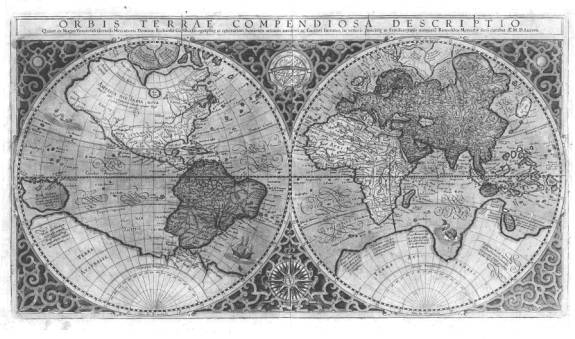LITR 5734:
Colonial & Postcolonial Literature

Sample Student Final Exams 2008
Essay 2: Compose a dialogue between our four novels since the midterm. (Objectives 1, 2, and 3 + others)
Tanya Stanley
Self versus Other: A Child-Parent Dialogue throughout Colonial and Postcolonial Literature
We can explore the concept of intertextuality between the self and the other through the child-parent relationship throughout the novels. The self-other concept is a facet of dialogue and historicism within objective one of the course. The self needs the other in order to have a dialogue; without the other, the self cannot compare or contrast itself to anything and the self can only represent a monologue. Through an intertextuality between the novels Robinson Crusoe, Lucy, Train to Pakistan, and A Passage to India, the reader witnesses a dialogue between colonial and postcolonial literature through the representation of the child as the self versus the parent as the other. The dialogue between the texts proves that the novel is the defining genre of modernity.
Robinson Crusoe and Lucy share a dialogue encompassing the self versus the other. For Crusoe, he is the self and his father is the other. Crusoe says his father counseled him against his desire to go to sea (Defoe 5). Crusoe says his father told him “he would do very kind things for me if I would stay and settle at home as he directed” (Defoe 7). A few weeks after Crusoe’s father laments, Crusoe runs away (Defoe 7). Like Crusoe, Lucy sees her mother as a representation of the other. Lucy’s mother would never accept that Lucy’s needs were more important than her own wishes (Kincaid 63-64). Both Lucy and Robinson Crusoe express an intertextuality of the self versus the other—the child versus the parent—within colonial and postcolonial literature.
Like the characters in Lucy and Robinson Crusoe, Train to Pakistan’s Juggut Singh expresses the self versus the other clash with his parent. Even though Juggut is on probation and cannot “leave the village after sunset,” Juggut refuses to listen to his mother’s plea for him to stay home. Like Lucy, Juggut disrespects his mother without fail while she tries to plead with her son. Lucy’s mother and Juggut’s mother warn their children of the dangers outside their homes, but neither child will surrender to their parent’s desires. Crusoe recalls his father telling him his older brother’s desires prompted “him to run into the army where he was kill’d” (Defoe 7). Even though Crusoe feels “sincerely affected with this discourse,” he still runs away (Defoe 7). Juggut’s mother, like Crusoe’s father, reminds Juggut of his father’s fate by saying “If you want to hang like your father, go and hang” (Singh 11). Like Crusoe, Juggut ignores his mother’s petition and journeys out anyway. Lucy, Crusoe, and Juggut ignore their parent’s plea because they see themselves as the self who clash with their parents—the oppressors and the others.
Mirroring Lucy, Crusoe, and Juggut’s actions, Ronny views himself as the self, and anyone who negates his mission in India or anyone native to India represents the other, especially Ronny’s mother. Forster’s novel, A Passage to India, expresses Ronny’s relationship with his mother as Ronny representing the self and his mother representing the other like we see in Lucy, Robinson Crusoe, and Train to Pakistan. Forster introduces the intimate conversation between Ronny and his mother by saying “there was another interview between mother and son” (50). After Ronny’s mother, Mrs. Moore, suggest the Anglo-Indians do not “behave pleasantly to Indians,” Ronny explodes with irritation. The reader becomes aware of Mrs. Moore noticing Ronny’s abruptness in his speech, but she does not join her son in his exclamations, which suggests Ronny has previously yelled at her. Ronny’s mother remains calm—yet annoyed—at her son’s lack of compassion for the Indians; Forster describes the confrontation between Ronny and his mother as an utmost echo of silence (54). Even though Ronny and his mother do not shout at one another like Juggut and his mother or Lucy and her mother, Ronny and his mother end their conversation with a mention of God like Crusoe and his father. Ronny’s mother tells him “God has put us on earth to love our neighbors and to show it, and HE is omnipresent, even in India…” (Forster 53). Crusoe’s father warns Crusoe that God will not bless him if he leaves home (Defoe 7). Ronny and Crusoe defy their parents and defy their parent’s religious insertions into their arguments with their attempts to alter their children’s decisions. Lucy, Crusoe, Juggut, and Ronny perceive themselves as the self in the self-other conception and perceive parents as the other.
The dialogues the texts produce prove the novel is the defining genre of modernity because the reader becomes passionately involved in the storytelling of the characters’ struggles with their parents. Like objective two suggests, literary fiction can instruct students’ knowledge of world history. Without taking the colonial and postcolonial literature course, I would not have read A Passage to India or Train to Pakistan. After the reader invests time and develops an emotional connection with the characters and the story, she may further her research into the historical aspects or the anthropological aspects of the subjects she has read. Through storytelling, novels instruct students on subjects the students may not have ever approached.
